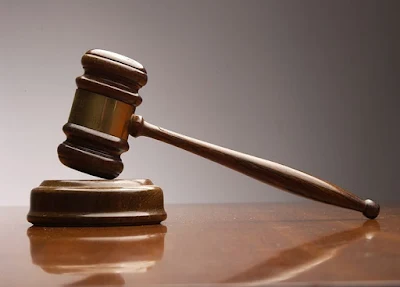Bloggers Association of Kenya and Kenya Union of Journalists gets a big blow after the court upheld the controversial media law.
Big blow to bloggers as the High Court on Friday declined to nullify 26 sections of the Computer Misuse and Cybercrimes Act 2018.
Justice James Makau dismissed a suit which had been filed by Bloggers Association of Kenya (BAKE) and declared the Act valid in its entirety.
“The constitutionality of the computer Misuse and Cyber-crime Act is valid. The petition was unwarranted and it is therefore dismissed,” he said.
Justice Mwita thereby lifted the 26 sections, which had been suspended when the petition was filed in court in 2018.
Mwita had agreed with the association that if the law came to effect there was an immediate danger of bloggers and other online users.
He observed that the sections in dispute touch on child pornography and its penalties and publishing of false information and also involve fraudulent use of electronic data, interference with computer systems and data.
They had sued the Attorney General, the Speaker of the National Assembly, the Inspector-General of Police and the Director of Public Prosecutions.
Kenya Union of Journalists and Article 19, a lobby group were enjoined in the case as interested parties. The association had argued that the Act infringes on freedom of expression and the right to privacy.
“If the Act is implemented, over 51.1 million Internet users in the country risk being prosecuted given the vague and overboard terminologies in the Act,” they argued.
Similarly, the Act criminalises abuse of persons on social media.
BAKE had argued that the 26 sections of the law threatened the freedom of opinion, freedom of expression, freedom of the media, freedom and security of the person, right to privacy, right to property and the right to a fair hearing.
It argued that Section 3 (d) on the Objectives of the Act negates the very purpose it seeks to enhance as it fails to protect rights to privacy, freedom of expression and freedom of information.
BAKE also argued that the National Computer and Cybercrimes Coordination Committee lacked oversight in its representation as it was solely from the government.
It was the association contention that section 16 and 17 of the act that touches on an unauthorised interception, unauthorised access and unauthorised interference are meant to stifle whistleblowing culture and practice in the country.
“Section 22, while seeking to address fake news, or false publication which is an international growing concern, defining what constitutes ‘false’ is problematic. It is not only problems that the Act fails to define it, but also in practice, giving fertile grounds for individuals in power to use and misuse it to arrest, intimidate and threaten bloggers and Kenyans online,” the association had argued in court.
“Section 23 on publication of false information lacks clarity. What the state for all its intent and purpose could define as possibly causing panic could be regarded by the general public as ridicule and genuine criticism,” claimed the Association.
The judge, however, dismissed all their grounds and declared all the sections valid


Post a Comment
What is your say on this